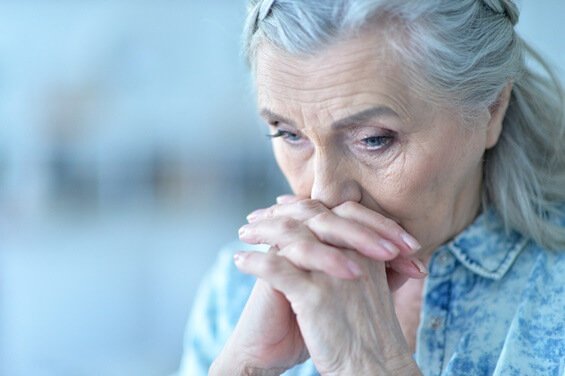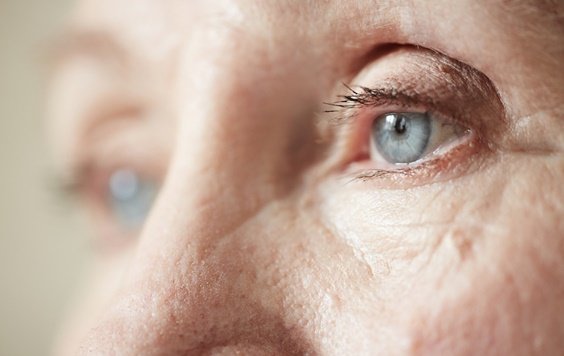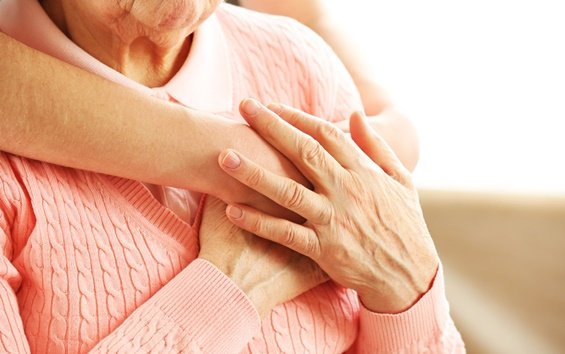How to Help an Elderly Person with the Blues

Sadness is part of life and nobody can escape it. However, there are certain stages of life when we’re more vulnerable to sadness. One of these stages is old age, that time in our lives when we begin to see youth as a distant horizon we left behind long ago. If you have an elderly person in your life who is depressed or “just” sad, you may be wondering how you can help.
There are several reasons sadness may come in old age. Just like adolescence, your body suddenly changes and it’s out of your control. The way you relate to your family members and your environment also changes. At this stage, many people stop working regularly while others have to deal with the loss of a spouse, friends, and dreams that will now probably never come true.
Helping an elderly person with the blues isn’t as hard as it may seem. It’s true that they may have serious physical limitations limiting them. However, there are usually many options out there that can change their life and make it happier.
“The art of aging is the art of preserving some hope.”
-André Maurois-
Risk factors for depression
The best way to help an elderly person is to pinpoint their risk factors for depression. Let’s keep in mind that losses are common in this stage of their lives, while “wins” are more rare. It’s the opposite of what happens in childhood.

Other circumstances could increase the risk of depression in later stages of life. Here are the main ones:
- Health status. The risk of depression is much higher for those who have health issues, especially chronic conditions. This is especially true for degenerative diseases or those involving constant physical pain.
- Personality traits. People who are insecure or have low self-esteem are more likely to be carried away by sadness as they get older.
- Socioeconomic status. Both economic dependence and a lack of resources in this stage ups a person’s risk of depression.
- Living alone.
- Having little to no social interaction.
Now that you know these risk factors, you can also watch out for them. Then you can evaluate them, always with the active participation of the individual. Remember, the goal is always to prevent depression.
Helping an elderly person with the blues
Helping an elderly person who is sad is not the same as taking responsibility for their sadness. What a depressed individual needs is not for someone to “adopt” them, let alone pity them. What they need is motivation, affection, company and support. But most of all, what they need is respect.
That means you need to accept their timing, decisions, and preferences. You can give them advice and encourage them, but you also need to let them know that they’re the ones who make the decisions. Changes are much more likely to stick if you do this.

Intelligent, personalized help is even more effective when it comes out of honesty and affection. Your help has greater impact when you actually care about the person you’re helping than when you do it out of your own convenience.Now, what can you do to help an older person who doesn’t feel well emotionally?
Guidelines
- Try to get them to question their negative thoughts, the same way their mood is making them question their positive thoughts. Do it with love. If they say they feel incapable of doing anything right, ask them if they could do something to change that situation. If they say that nothing interests them anymore, let them speak freely about the reasons, without confronting them.
- Don’t allow them to spend all day doing nothing. Help them find small productive tasks that make them feel useful.
- Foster positive feelings. Help them remember good times in their lives and all their achievements. Ask for their opinion and let them know that you value their wisdom and experience.
- Give them incentives to do activities, no matter how small they may be. A morning walk, reading a book, gardening… any activity is fine.
- Help them get into a good routine. Sadness and depression sometimes make people spend a lot of time in bed or too many hours watching television. Try sitting down with them and rearranging their schedule together. But don’t forget that even if you come up with some ideas, they have the last word. Otherwise, you’ll have to supervise them constantly to make sure they happen.

You may just notice that you’re the one gaining
when you support the vulnerable. It can fill your life with purpose and greater meaning, and don’t be surprised if you get some wisdom out of it too.
*Editor’s note: Sadness is strictly defined as an emotion and, as such, doesn’t last a very long time. In this article, we refer to sadness as a state in which melancholy, despair, and sadness itself predominate, rather than the emotion per se.
This text is provided for informational purposes only and does not replace consultation with a professional. If in doubt, consult your specialist.








